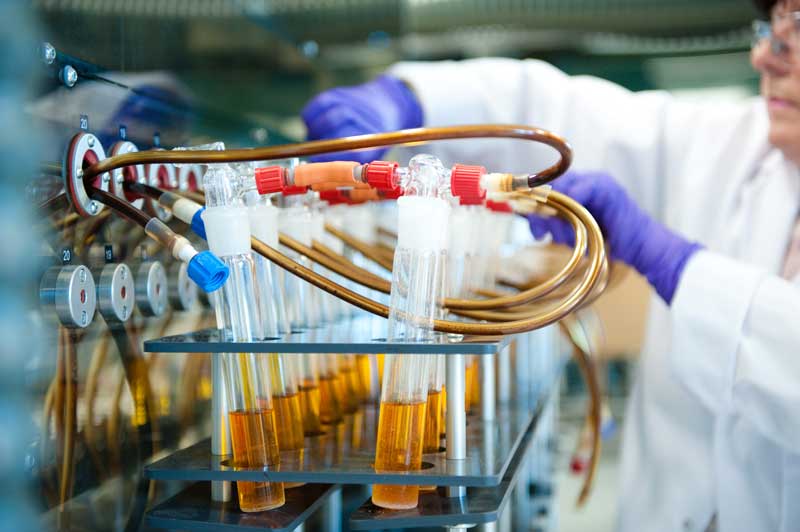Safer nicotine analysis

BAT is carving out a strong, scientifically sound business in next-generation products.
SEAL Analytical, a global manufacturer of laboratory analytical equipment, has released what is says it a safer method for total alkaloids (as nicotine) in tobacco analysis. The new method avoids the use of highly toxic reagents.
In 2014, the CORESTA Routine Analytical Chemistry Sub-Group undertook a study to compare a new, safer method of determining total alkaloids (as nicotine) in tobacco. In the classical method, highly toxic potassium cyanide (KCN) reacts with chloramine-T. The proposed method uses potassium thiocyanate (KSCN) with sodium dichloroisocyanurate dihydrate for color development. The two methods compared were CORESTA Recommended Method No. 35 (CRM35) / ISO 15152 and a new method proposed by the China National Tobacco Quality Supervision and Test Center (CTQTC).
In total, 19 laboratories participated in the 2014 study. Collaborating with China Tobacco Co., 16 of the participating labs used SEAL’s AA3 continuous flow analyzer including British American Tobacco (BAT).
The SEAL Analytical Application development teams in Germany and the U.S. worked closely with CTQTC, China and the RAC committee to help develop this method. The comparative studies showed highly reproducible and comparable results between the approved KCN method and the proposed KSCN method in both water and acetic acid tobacco extracts.
The new “safer nicotine” method was submitted to the CORESTA committee in 2016 and was approved in April 2017, and is now CORESTA CRM No. 85. The method has been submitted for ISO approval and an announcement is anticipated early in 2018. CRM No.35 has now been made obsolete and replaced by the new CRM 85, Safer Nicotine method. SEAL Analytical offers this method on both the macro-flow (AA3) and micro-flow (QuAAtro) continuous flow analyzers.
CORESTA promotes international cooperation in scientific research relating to tobacco and its derived products. SEAL is a member of the CORESTA RAC sub-group, which meets twice a year to discuss development and maintenance of CORESTA recommended methods.